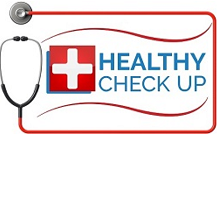Are Your Blood Cells Getting Sick? | Check Your CBC $35 Blood Test Store

Check your own (CBC) Complete Blood Cell Count blood test.
The complete blood count is a health test used to screen your overall blood cell health condition and to look for many different illnesses, including anemia, infections, and leukemia. This medical test extracts a large amount of information from the blood sample you've given, including: The number and types of white blood cells (WBCs). There are five types of WBCs, which all play a role in fighting infection. High numbers of WBCs, or of a specific type of WBC, may mean you have an infection or inflammation somewhere in your body, among other things.
Low numbers of WBCs may mean you are at risk for infections. The number of red blood cells (RBCs). RBCs carry oxygen throughout the body and remove excess carbon dioxide.
Too few RBCs may be a sign of different conditions or diseases. In rare cases, too many RBCs may cause problems with blood flow.
- Variation in the size of your red blood cells.
- This test is known as red cell distribution width (RDW).You'll probably have greater differences in red blood cell size, for example, if you have anemia.
- The percentage of red blood cells in a certain volume of whole blood (hematocrit).
- A low hematocrit may be a sign of excessive bleeding or of a problem making new red blood cells, such as because of an iron deficiency. A higher than normal hematocrit can stem from dehydration or other disorders.
- A hemoglobin count. This protein in red blood cells carries oxygen from the lungs to the rest of the body. Abnormalities can be a sign of problems ranging from anemia to lung disease.
- The average size of your red blood cells. This test is known as mean corpuscular volume (MCV). MCV goes up when your red blood cells are bigger than normal, which may be seen with anemia caused by low vitamin B12 or folate levels. If your red blood cells are smaller, this can indicate other types of anemia, such as from iron deficiency.
- A platelet count. Platelets are cell fragments that play a role in blood clotting. Too few platelets may signal an increased risk of bleeding, and too many may mean a number of possible conditions.
Why do I need this lab test?
You may need this blood test if you have:
- Unusual bleeding or bruising
- Infection or inflammation
- Persistent weakness and fatigue that your doctor suspects may be symptoms of anemia
You may also have this medical test if your doctor suspects you may have a certain medical disease or condition. Or you may receive it as part of a routine exam to check your health status. In addition, the test may be used to monitor the effectiveness of certain treatments.
What other health tests might I have along with this lab test?
Your doctor may order additional health tests to confirm a diagnosis or to figure out the most effective therapy for you. For example, you may have a bone marrow test if your CBC shows that you may have a bone marrow disease. If your CBC shows that you have anemia, your doctor may order tests to look for possible causes, such as checking your iron, folate, and vitamin B12 levels.
What do my test results mean?
Many things may affect your lab test results, including the method each lab uses to do the test. Even if your test results are different from the normal values, you may not have a problem. To learn what the results mean for you, talk with your health care provider.
Although estimates vary from lab to lab, here are some typical normal ranges for the main parts of the CBC:
- Red blood cell count: 3.93 to 5.69 million cells per cubic millimeter
- Hemoglobin: 12.6 to 17.5 (g/dL) for males; 12.0 to 16 g/dL for females
- Hematocrit: 38 to 47.7 percent
- White blood cell count: 3,300 to 8,700 cells per cubic millimeter
- Platelet count: 147,000 to 347,000 per cubic millimeter
Abnormal blood test results can have many causes, some of which might not mean that you have a problem that requires treatment. The most common abnormality found through the CBC is mild anemia. You may have further lab testing, depending on how severe the anemia is and whether other abnormalities crop up in this health test.
Why do I need this blood test?
If you have unexplained symptoms or concerns for an illness, checking yourself for the presence or absence of a disease is only confirmed through a blood test.
Take control of your health. Access to “Self” healthcare is now available anytime, through the Healthcare Blood Test Store online, where you can order your own blood test at an FDA approved lab location near your home or office nationwide!
Repeat your Pre-Paid blood test as often as you would like, without your doctor's order. Know your numbers to follow your health progress. Stay informed about your health changes, particularly when taking long-term medications, or following new life style changes to improve your health. A Complete Blood Cell Count CBC blood test is available for only $35.00 at www.healthcarebloodteststore.com
Note: For confidentiality reasons, all lab test orders require you to fill out and sign a Medical Information/HIPAA Release Form. You will receive this form by email, after completing your purchase, and it will require an E signature, with fun and simple step-by-step instructions, that you will be able to do yourself. Don’t worry it is very simple!

